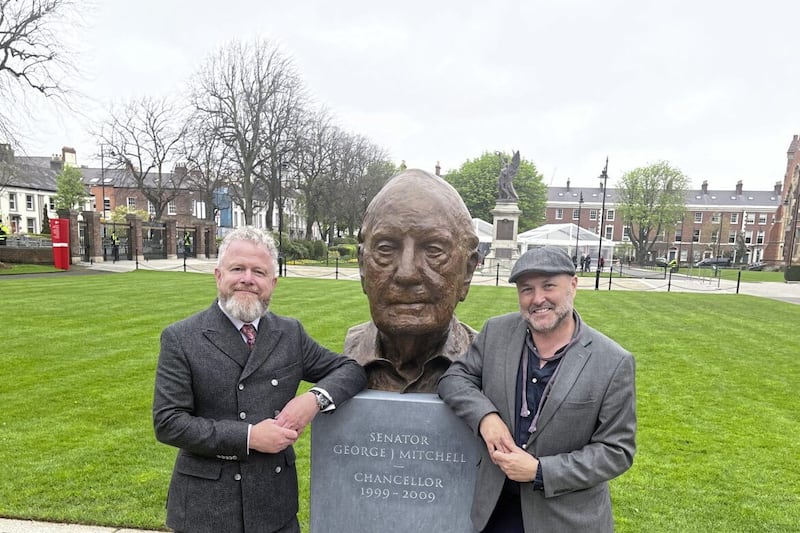JANUARY is always a time for planning in MCE, the business I work in, because our new financial year starts on February 1, a quirk of when the company was founded.
When I look back at 2019, despite all the uncertainty around Brexit and the political vacuum here, it was a pretty good year for us. I don’t know the final figures and it will depend a bit on the numbers for January, but it looks like our organic growth will be up by a reasonable percentage. Nearly every other owner-manager I know in business seems to be in a similar position - 2019 was a decent enough year, not spectacular but not bad either.
And while I haven’t done exhaustive research, anybody I’ve spoken to about the year ahead seems to be reasonably optimistic about 2020. I am too, if I keep the focus very narrow.
But if I look up a little and scan the wider horizon, I quickly start to get worried. And I am not talking about World War III starting in the Middle East or even the Brexit deal when it comes, though no doubt, it will have a fundamental impact on the economy here.
What makes me most pessimistic is this place’s ability to get things done and its inability to balance its books - the gap between public spending and tax revenue raised here is £4,939 per person, according to the public policy think tank Pivotal. That, needless to say, is by far the highest number out of any of the UK’s 12 regions.
So, as our politicians sit down again this week to try and restore the Assembly and Executive, I see some very good reasons for them to act quickly and decisively. The challenges, not least in the health service, are obvious. Having said that, given that I’ve had reasonably good sight of departmental and Executive decision making since the signing of the Good Friday Agreement, I don’t have great faith in our ability (and I say that collectively since we elect our politicians) to make hard decisions.
It has been easier to delay decisions (school closures/infrastructure building/social welfare reform/legacy etc) than actually to make them, though there has been progress over the period for sure. It’s not all doom and gloom. And certainly, I subscribe to the notion that we are far better having local ministers in place than either direct rule or what we’ve had over the last three years.
One small fledgling thing that’s happened which will hopefully steer our returned ministers in a better direction is the creation of the aforementioned Pivotal. Independent and sitting outside government, Pivotal wants to improve public policy here using ‘evidence, engagement and analysis’ as its tools.
Set up by a range of very capable people, Pivotal is getting practical support from the two universities and funding from a number of private and other sources, though it needs more. Its first director is Ann Watt, a very experienced and respected former senior civil servant.
Pivotal’s first paper ‘Moving Forward – Putting Northern Ireland on track for the Future’, issued on December 16, made very clear that in public policy terms ‘significant and urgent change is needed’ here. The paper (www.pivotalppf.org) essentially set out our biggest challenges and posed some questions for the new Executive. I hope they all read it when they get into their jobs, it should be part of every ministerial briefing pack.
Not surprisingly, the six areas identified lead off with ‘A Strong Economy’. The others are: health and social care; education; poverty and disadvantage; climate and biodiversity and lastly, community relations.
I don’t have space to get into it in detail here (it is a very readable and relatively short report) but it’s worth highlighting some of the economic points because if we can start to get those right – then other decisions and work become easier, there is good reason behind leading the report off with a strong economy.
At the moment, we are in a spiral here of poor productivity and high economic inactivity, even though employment levels are now much more positive and unemployment is low. We also have a low skills base and a comparatively low demand for skills and Pivotal reports on research which shows that this creates ‘an unsatisfactory equilibrium of low skills, low productivity and low wages.’
As I said, the Pivotal report sets out to ask questions but it flags a number of economic areas that need addressing now, including infrastructure (transport, roads, sewerage and the north-south interconnector), skills, innovation and new ideas for the global economy emerging which is more about sustainability and social value than profit.
Good food for thought for our politicians – if they can just hurry up and get a deal done. Both Sinn Fein and the DUP in particular know what they heard on the doorsteps during the election campaign, so they and the other parties must act now to get this place moving in the right direction.
Meantime, I’ll get back to my business planning for what I hope will be another decent year in 2020 . . . .
:: Paul McErlean (paul@mcepublicrelations.com) is managing director of MCE Public Relations
:: Next week: Conor Lambe









